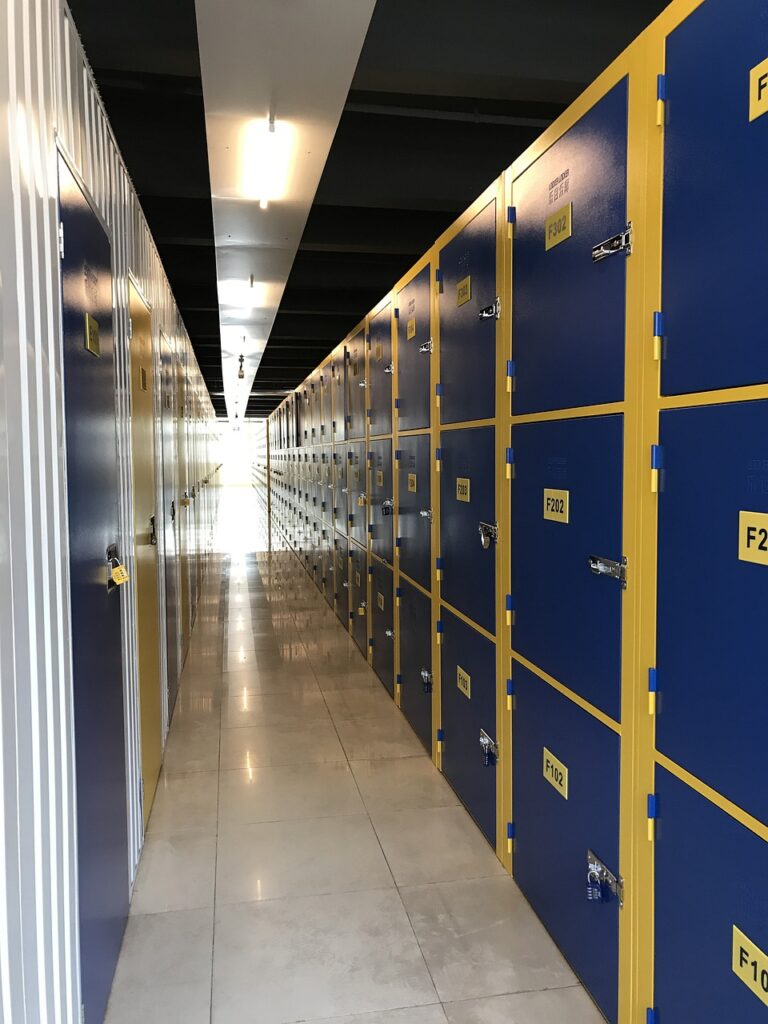Self-Storage Warehouse Insurance
Home » Self Storage Insurance
Personalized Solutions for Mini-Storage and Self Storage
Running a self-storage or mini-storage facility comes with unique challenges—from safeguarding tenants’ belongings to keeping your property secure. We understand the specific risks you face and offer customized insurance solutions to help protect your facility, your clients, and your business. Whether it’s ensuring against theft, property damage, or liability claims, our tailored coverage options are built to fit the needs of your storage business.
Robust Protection
Your self-storage business has unique needs, and a one-size-fits-all insurance plan won't do. Our tailored coverage options are built specifically around the risks you face, ensuring you only pay for what you need.
Claims Advocacy
In the event of a claim, we’re here to guide you through the process, ensuring you receive a fair and swift resolution. We work alongside you to ensure your best interests are always the priority.
Risk Assesment
We help you identify potential risks in your facility and provide strategies to prevent them before they happen. Protect your business with proactive solutions that minimize claims and keep your operations smooth.
Ongoing Support
Our dedicated team is available to assist you whenever you need it. Whether it's answering a question, adjusting your policy, or helping with a claim, we're just a call or click away.

Keep Your Self-Storage Facility Protected
Managing a self-storage facility means protecting your property and your tenants’ belongings. Our insurance covers everything from building damage to legal claims, ensuring your business can keep running smoothly—even when the unexpected happens.
Property Insurance
Covers damage to your storage facility from events like fire, storms, or vandalism, ensuring your buildings and equipment are protected
General Liability
If someone gets injured on your property or claims damage to their belongings, this coverage helps with legal costs and any payouts.
Business Interuption
If your facility has to close for repairs after a covered event, this coverage helps replace lost income, so you can still meet your financial obligations.
Tenant Property Legal Liability
Protects you from legal claims if a tenant’s stored property is damaged due to your negligence.
Theft and Vandalism Coverage
Covers the cost of repairs or replacing stolen items if your facility is broken into or vandalized.
Workers Compensation
Make sure your employees are taken care of if they’re injured on the job. Workers compensation covers medical bills, lost wages, and other expenses, keeping your business compliant and your team protected.
Commercial Umbrella Coverage
Gives you extra protection if a liability claim, like injury or property damage, exceeds the limits of your base policies. This ensures your self-storage facility is covered in case of large claims that go beyond your primary insurance limits.
Meet Our Self-Storage Insurance Team

Misty Livermore, CAWC
Account Manager

Tracy Clothier
Account Manager
I receive great service, helpful information and they always make me feel valued as a customer. I recently had a claim and couldn't be happier with the service I received. The follow up was excellent and they took care of everything!
-Glen Kanarr

Proud to Represent













The Latest in Insurance Tips and Tricks
Before purchasing insurance for your business, there are several factors you should consider. Feeling overwhelmed? We’ve got you covered. Get the essential information in our insurance blog.

Starting a Dispensary in Minnesota? 4 Smart Insurance Strategies to Improve Cash Flow
The #1 mistake dispensary startups make? Overpaying for Minnesota dispensary insurance they don’t need. Minnesota dispensary owners: Don’t let overpriced insurance drain your startup’s cash flow before you even open your doors! Opening a cannabis dispensary in Minnesota is an exciting opportunity, but navigating the complexities of the industry requires

Think You’re Insured? 7 Cannabis Insurance Gaps That Could Cost You Big
If your cannabis insurance policy includes these exclusions or warranties, your business could be at serious risk due to insurance gaps. Understanding Common Exclusions and Warranties in Cannabis Insurance Policies The cannabis industry faces unique challenges when it comes to insurance. With strict regulations, high-risk exposures, and an evolving legal

Why Does My Cannabis Insurance Cost So Much?
Sticker shock? You’re not alone. Many cannabis businesses are wondering why their insurance costs are so sky-high. The answer isn’t simple—but there are ways to take control and manage the cost of cannabis insurance. If you own or manage a cannabis business, you’ve probably noticed how expensive commercial insurance can

